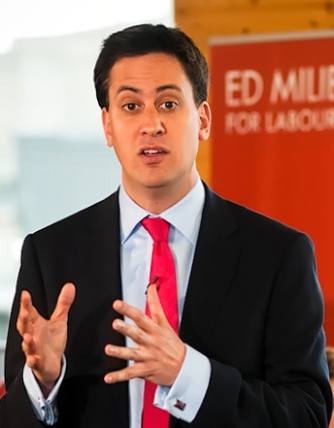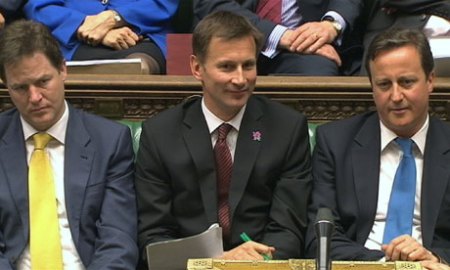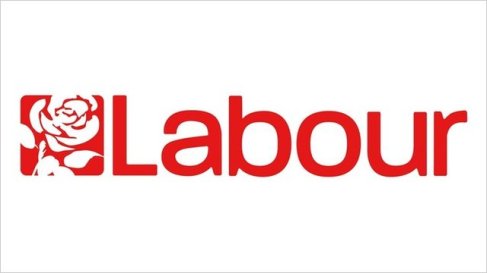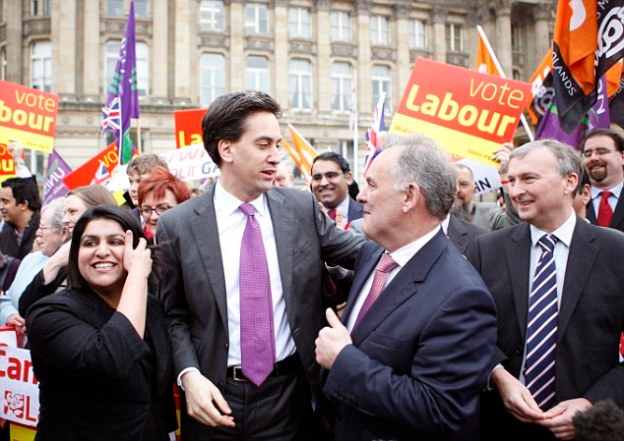NHS managers in England have been accused of “shocking discrimination” in commissioning mental health services.
The Mental Health Policy Group from the London School of Economics said three-quarters of people with depression or anxiety got no treatment.
The committee of senior academics and medical professionals described this as a “real scandal”.
Care Services Minister Paul Burstow said mental health should be treated as seriously as physical health issues.
The committee is headed by economist Professor Lord Richard Layard and includes some of the country’s most eminent mental health experts.
Mental illness can manifest itself in physical symptoms and the group of experts estimate such symptoms cost the NHS at least £10 billion. Much of this money would be better spent on psychological therapies, they claim.
‘Despite the existence of cost-effective treatments it (mental illness) receives only 13 per cent of NHS expenditure,’ they write.
‘The under-treatment of people with crippling mental illness is the most glaring cause of health inequality in our country.’
One third of families have a member who is currently suffering from a mental illness, they say. It accounts for nearly half of absenteeism at work and mental illness accounts for nearly half of people on incapacity benefits.
The authors, who include doctors, psychologists, NHS managers and economists, condemn local health commissioners for inappropriately using allocated mental health funding and say that in some areas mental health provisions are being cut.
The authors also recommend better training of GPs and suggest that recruitment into psychiatry should be increased.
They also call for an “imperative” upgrade of specialist help to provide children with affective therapies, as there are 700,000 children in Britain with behavioural problems, anxiety or depression.
Professor Lord Layard of the LSE Centre for Economic Performance said that mental health is so prevalent in society that it deserves its own cabinet minister.
He said: ‘If local NHS commissioners want to improve their budgets, they should all be expanding their provision of psychological therapy.
‘It will save them so much on their physical healthcare budgets that the net cost will be little or nothing.
‘Mental health is so central to the health of individuals and of society that it needs its own cabinet minister.’
The report concludes: ‘Mentally ill people are particularly vulnerable.
‘They are often afraid to seek help or even say they are unwell, and so are their relatives. But they represent nearly one half of all health-related suffering in this country.
‘Within the NHS they represent the greatest areas of unmet need among adults and children.’
Mental health charities welcomed the report.
Sane chief executive Marjorie Wallace said: ‘We are at an all-time low in the response of mental health services to people with severely disabling mental illness.
‘While the Government has put money into psychological therapies, on the other hand resources are being drained from the fundamental care and treatment of people in crisis, those in need of in-patient care such as the suicidal, and those in the community where the cuts are depriving them of the few things that make their lives more tolerable, such as day centres, clubs, activities and occupation.
‘We support Lord Layard’s call to action, before there are too many casualties and the services become too fragmented to help them.’
Mental Health Foundation chief executive Dr Andrew McCulloch added: ‘The report underlines the fact that mental health remains a poor relation to physical health despite the major links between depression, diabetes and heart disease, for example.
‘We have to tackle a situation where only 25 per cent of people with common forms of mental illness are receiving treatment and where there is massive under-investment in mental health research.’
The Royal College of General Practitioners said that GPs are facing an ‘upward spiral’ of patients suffering from mental illness.
Professor Clare Gerada, chair of the RCGP, added: ‘GPs face tremendous challenges in caring for patients with mental health problems in primary care and we welcome any development which will help us improve their care.
‘Talking therapies have the potential to transform thousands of patients’ lives and we applaud Lord Layard and his team for their efforts to extend the programme further.
‘This would be a major step forward, not only for patients, but for GPs and other health professionals working in mental health.’
Sarah Brennan, chief executive of Young Minds, said: ‘Lord Layard is right to highlight how mental health is often the Cinderella service of the NHS. Yet the picture is even worse for children and young people’s mental health where for every pound spent by the NHS less than a penny is spent on Children and Adolescent Mental Health Services.
‘Getting it right for children when they are young plays a key part in reducing the number of people who suffer with mental illness throughout their lives.’
Care Services Minister Paul Burstow said: ‘Mental ill-health costs £105 billion per year and I have always been clear that it should be treated as seriously as physical health problems.
‘We will shortly publish our plans to make sure the NHS, councils, voluntary organisations and others can play their part in improving the nation’s mental health.
‘The Coalition Government is investing £400 million to make sure talking therapies are available to people of all ages who need them.
‘This investment is already delivering remarkable results.’
It said the NHS in England was guilty of injustice in its treatment of people with mental illness.
The group’s report found that among those aged under 65, nearly half of all ill-health was mental illness.
It said six million people had depression or anxiety conditions and yet three-quarters got no treatment.
This was often because NHS managers failed to commission properly the mental health services recommended in official guidance, the experts added.
They said £400m earmarked by the government for psychological therapy was not always used for its intended purpose because there was no obligation on managers to do so.
The committee concluded that mental health services should be expanded, but if anything it was being cut.
‘Little cost’
Lord Layard said: “If local NHS commissioners want to improve their budgets, they should all be expanding their provision of psychological therapy.
“It will save them so much on their physical healthcare budgets that the net cost will be little or nothing.
“Mental health is so central to the health of individuals and of society that it needs its own cabinet minister.”
Mr Burstow said investment in mental health services was “already delivering remarkable results”.
“Mental ill-health costs £105bn per year and I have always been clear that it should be treated as seriously as physical health problems,” he said.

“We will shortly publish our plans to make sure the NHS, councils, voluntary organisations and others can play their part in improving the nation’s mental health.
“The coalition government is investing £400m to make sure talking therapies are available to people of all ages who need them.”
Observations:
Where can I start from to discuss this subject on mental health. to begin with I had two members of my family who suffered from Mental Health problems many years ago which led me into a career in with with people who had mental health problems years later as a support worker then a Social Worker Assistant.
Since the introduction of the Community Care Act that came into force we have seen the support services for people with mental health went down by the wayside. many of the carers can tell you from the their own experience that they have seen love ones either died or they have gone further into depression with little or no support from the NHS or the Government all they get is acknowledgement of tokenism which does little for both the sufferers and carers.
I will leave you with a few words from a services user carer who once said to me “IT’S a sad and lonely existence for both of us, boring and unfulfilled, scary and life-changing,” explains Jean de Carteret, who cares for her schizophrenic son.
“I live it out with him as I feel it’s my duty to make his life as normal as possible.”
Jean, 66, who lives in Broxbourne borough, hopes by telling her story she can raise awareness and understanding of mental illness.
“Caring for someone with a mental health problem is an intensive commitment which can span a lifetime. For me it has been a life-changing experience from which I will never escape.
“Few people realise that it robs both the carer and the sufferer of a normal life and can cause enduring mental health problems, which can change alarmingly from reasonable recovery to sudden relapse, but also heartache, poor physical health and lower life expectancy.
“I have been a carer for my brother and son for more than 30 years and although anti-psychotic drugs and outcomes have improved, my role has never diminished and will probably increase.”
She continued: “However, I don’t feel sorry for myself. I have been a carer for so long it has become a way of life for me and I have become used to shouldering the responsibility that goes with this unpaid labour of love. “Years ago that responsibility became very clear to me, when my late brother pleaded with me not to send him into a secure mental health unit again, when he was unable to keep food down.
“He had been sectioned countless times and was living in a hostel at the time. I insisted that he should be given a full physical examination. He could only eat soup and drinks liquids and after the tests were carried out, it turned out he was dying from oesophageal cancer.
“He went into a general ward in a hospital where he died soon afterwards, but with dignity and peace. That taught me to always listen and take very seriously the concerns and wishes of your loved one.
“That was my first experience with schizophrenia. The second was after my son, who had an IQ of 164, was fooling around with skunk cannabis with his mates during his first year at university.
“He said it felt like his brain moved and he threw up and had a shaking fit in his room. He was like a zombie afterwards and the left side of his head was very tender.
“He could not write, speak or read and was hallucinating and hearing weird things and became paranoid and stunned.
“Doctors said they believed the drugs had triggered schizophrenia and this was later confirmed. His sleeping pattern was irregular, often 18 hours at a stretch, then awake all night.
“There was the usual dismantling of clocks and speakers and childlike questions that a five-year-old would ask. For us as a family, there were lots of tears – we felt as if there had been a bereavement.
“The incident, which was very dramatic and catastrophic, happened only months after my brother died.”
Jean says that on a good day her son might get up at around noon, having gone to bed in the early hours of the morning.
She said: “I have to make sure he has taken his medication during the day and in the evening. Sometimes I forget and so does he. He has no friends, so I might drive him out for a McDonald’s and we’ll eat it in the car park, or we’ll go and see a 3D film. Sometimes we’ll go for a stroll, but he has little energy and gets out of breath.
“He used to have friends, but they have lost touch over the years, so I’ll chat about politics, TV or our cats just to engage him in conversation. I know he’d probably prefer to talk to friends about music, women or computer games.
“Every day is much the same although I look out for signs of a dip in his behaviour.
“My son had a couple of loyal friends, but gradually they slipped away and it is now left to his siblings to keep him in touch with his peer group. It’s not much of a life for a man of 33 who has been ill since he was 21.”
But Jean’s life has also changed, she explains: “At 66 I can no longer be carefree, plan my retirement, enjoy days out or long lunches with friends.
“I am trapped in a confined life which is currently stable, but can change suddenly due to a relapse or the inevitable sleepless nights, threat of being sectioned, tantrums about taking medication, bizarre behaviour, rantings, crisis teams, psychiatrists, GPs and so on.”
She continued: “The problem with mental health is that it is still so stigmatised and very few people can empathise with it, let alone offer you sympathy. People know I am a carer, but I can count on one hand the number of acquaintances and friends who ever ask ‘How is your son?’ or say ‘Tell him I said hello’.
“The few who do are the ones I value most nowadays, because they take the time to share my predicament, if only for a few minutes.
“There is no cure for schizophrenia. The lucky ones will just have psychotic episodes, some will manage to live on their own and have a measure of independence, while others might find caring partners. Mine is a different story, but each carer will say the same – your life is never the same again.”
Jean says the support she has received from the Hertfordshire Partnership NHS Foundation Trust has been invaluable.
“I and my son would not have been able to manage this illness and get to the stable stage we are at today. We just couldn’t cope with this illness without the trust.”
This one example that both the medical profession, social workers and carers have to put up with then the previous and present governments continues to pay lip services to people who have a mental health and learning disabilities.
Three-quarters of people suffering from mental illness are not receiving treatment, experts have revealed.
A damning report concludes that the NHS is failing people suffering from mental illness.
The authors of the report say that the under-treatment of people suffering from mental illnesses is the most ‘glaring case of health inequality’ in Britain.
They say that mental illness now accounts for nearly half of all ill health suffered by people in Britain – and it can be more debilitating than some chronic diseases – but only a quarter of those involved are receiving treatment.
Effective psychological therapies exist but are not widely available, the report by the Mental Health Policy Group from the London School of Economics (LSE) found.
Two-fifths of patients suffering from anxiety or depression can recover if they are treated by means such as cognitive behavioural therapy. The authors say that if such treatments were more widely available, it would cost the NHS little or nothing because it would produce savings in other healthcare areas.
Mental illness can manifest itself in physical symptoms and the group of experts estimate such symptoms cost the NHS at least £10 billion. Much of this money would be better spent on psychological therapies, they claim.
‘Despite the existence of cost-effective treatments it (mental illness) receives only 13 per cent of NHS expenditure,’ they write.
‘The under-treatment of people with crippling mental illness is the most glaring cause of health inequality in our country.’
One third of families have a member who is currently suffering from a mental illness, they say. It accounts for nearly half of absenteeism at work and mental illness accounts for nearly half of people on incapacity benefits.
The authors, who include doctors, psychologists, NHS managers and economists, condemn local health commissioners for inappropriately using allocated mental health funding and say that in some areas mental health provisions are being cut.
The authors also recommend better training of GPs and suggest that recruitment into psychiatry should be increased.
They also call for an “imperative” upgrade of specialist help to provide children with affective therapies, as there are 700,000 children in Britain with behavioural problems, anxiety or depression.
Professor Lord Layard of the LSE Centre for Economic Performance said that mental health is so prevalent in society that it deserves its own cabinet minister.
He said: ‘If local NHS commissioners want to improve their budgets, they should all be expanding their provision of psychological therapy.
‘It will save them so much on their physical healthcare budgets that the net cost will be little or nothing.
‘Mental health is so central to the health of individuals and of society that it needs its own cabinet minister.’
The report concludes: ‘Mentally ill people are particularly vulnerable.
‘They are often afraid to seek help or even say they are unwell, and so are their relatives. But they represent nearly one half of all health-related suffering in this country.
‘Within the NHS they represent the greatest areas of unmet need among adults and children.’
Mental health charities welcomed the report.
Sane chief executive Marjorie Wallace said: ‘We are at an all-time low in the response of mental health services to people with severely disabling mental illness.
‘While the Government has put money into psychological therapies, on the other hand resources are being drained from the fundamental care and treatment of people in crisis, those in need of in-patient care such as the suicidal, and those in the community where the cuts are depriving them of the few things that make their lives more tolerable, such as day centres, clubs, activities and occupation.
‘We support Lord Layard’s call to action, before there are too many casualties and the services become too fragmented to help them.’
Mental Health Foundation chief executive Dr Andrew McCulloch added: ‘The report underlines the fact that mental health remains a poor relation to physical health despite the major links between depression, diabetes and heart disease, for example.
‘We have to tackle a situation where only 25 per cent of people with common forms of mental illness are receiving treatment and where there is massive under-investment in mental health research.’
The Royal College of General Practitioners said that GPs are facing an ‘upward spiral’ of patients suffering from mental illness.
Professor Clare Gerada, chair of the RCGP, added: ‘GPs face tremendous challenges in caring for patients with mental health problems in primary care and we welcome any development which will help us improve their care.
‘Talking therapies have the potential to transform thousands of patients’ lives and we applaud Lord Layard and his team for their efforts to extend the programme further.
‘This would be a major step forward, not only for patients, but for GPs and other health professionals working in mental health.’
Sarah Brennan, chief executive of Young Minds, said: ‘Lord Layard is right to highlight how mental health is often the Cinderella service of the NHS. Yet the picture is even worse for children and young people’s mental health where for every pound spent by the NHS less than a penny is spent on Children and Adolescent Mental Health Services.
‘Getting it right for children when they are young plays a key part in reducing the number of people who suffer with mental illness throughout their lives.’
Care Services Minister Paul Burstow said: ‘Mental ill-health costs £105 billion per year and I have always been clear that it should be treated as seriously as physical health problems.
‘We will shortly publish our plans to make sure the NHS, councils, voluntary organisations and others can play their part in improving the nation’s mental health.
I would like to say to the coalition I and many others have not seen ‘The Coalition Government is investing £400 million to make sure talking therapies are available to people of all ages who need them. ‘This investment is already delivering remarkable results.’











You must be logged in to post a comment.